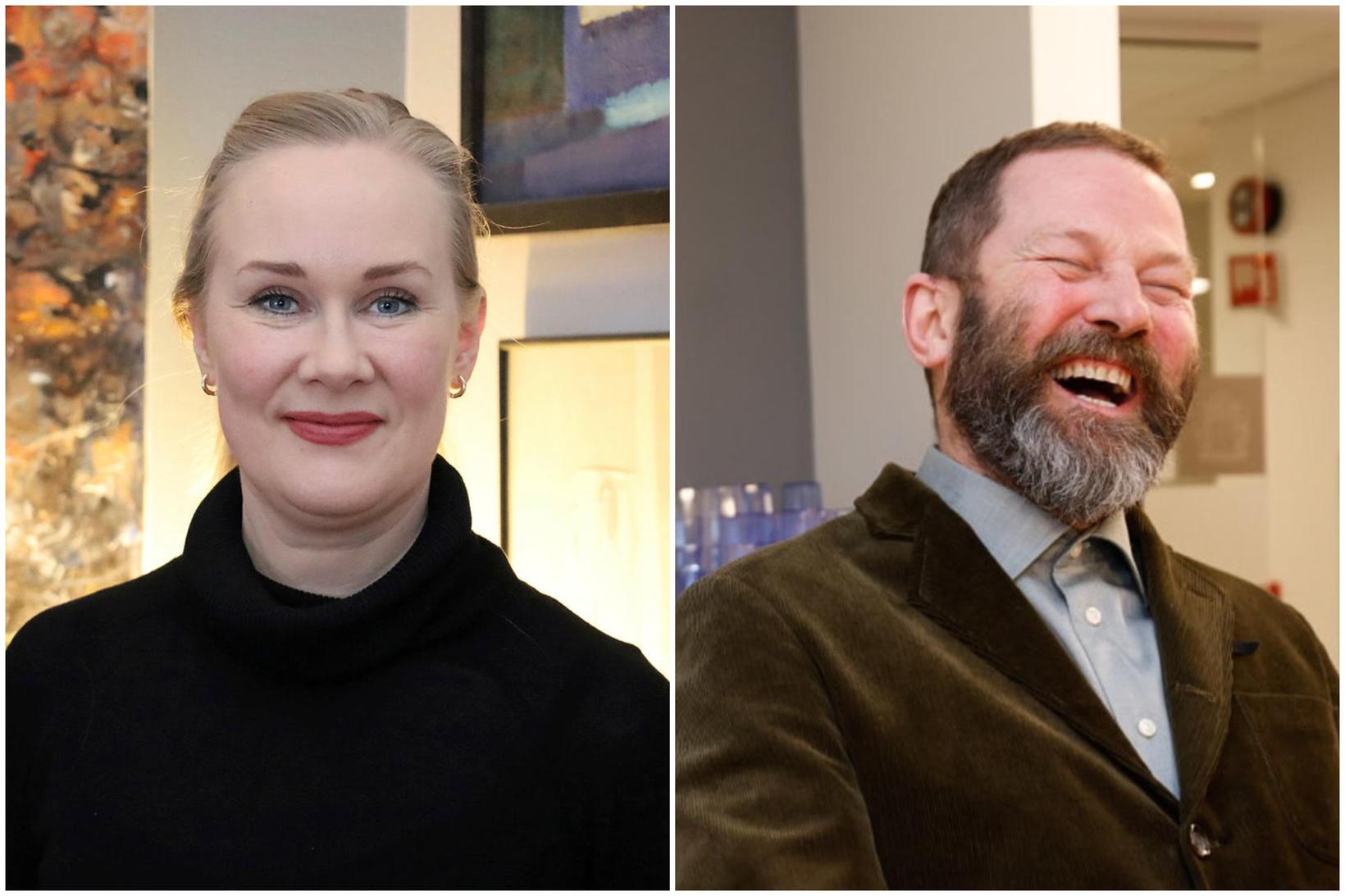“A big step forward for doctors”
Steinunn Þórðardóttir, Chairman of the Icelandic Medical Association and Ástráður Haraldsson, State Mediator. mbl.is/Sigurður Bogi/Eggert Jóhannesson
“This was finally achieved and we left the negotiating table very amicably last night,” says Steinunn Þórðardóttir, chairman of the Icelandic Medical Association, but agreements were reached in the wage dispute between doctors and the state and at other times last night.
Þórðardóttir says that the agreements broadly include a better agreement on working hours with all the changes that come with it.
“This is an agreement that has been made for other healthcare professions other than us and we are very happy to have reached that milestone.”
Shortening the workweek to 36 hours
Þórðardóttir says that the agreements include, among other things, shortening the workweek to 36 hours for all doctors, a more normal shift arrangement and more normal payments for different workloads on shifts.
“We were very concerned about these different experiences of doctors in rural areas, in hospitals and healthcare, and our guiding principle the whole time was to improve the working environment. That's what doctors have complained about the most," she says.
In that context, she mentions a lot of stress and an excessive amount of work, and new contracts should address that while at the same time ensuring good implementation so that the service remains good and hopefully better.
Trying to accommodate all groups
"We hope that the contract will be attractive to people who have chosen to settle abroad and the big goal is to attract more doctors."
Is there a group of doctors that the contract will be more useful for?
"Not really. We tried to accommodate all groups. It was time-consuming and that was partly the reason why it took so long to finalize the contract in the final months. We wanted to look at all possible implementations of doctors' work because we are very different from each other. We range from people who only work during the day to purebred shift workers like in the emergency room."
Þórðardóttir adds that the negotiating committee has always been concerned with not allowing any kind of inflationary effects regarding the salary components of the agreement and that by far the biggest issue has been to achieve better working hours and reduce excessive stress.
After the weekend, work will begin on introducing the agreement to members.
"These are significant changes and it is important that people get a good handle on them. We will have a big meeting on Monday evening and then the plan is to either go somewhere outside of Reykjavík or hold a remote meeting to introduce the agreement. A vote will then follow.
She says she is optimistic that the agreement will go down well with her members and says that it is a big step forward for doctors.







/frimg/1/57/93/1579337.jpg)

/frimg/1/57/94/1579405.jpg)